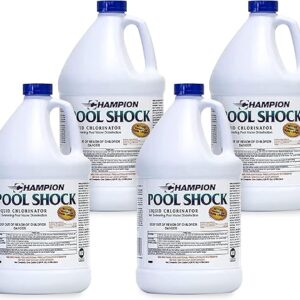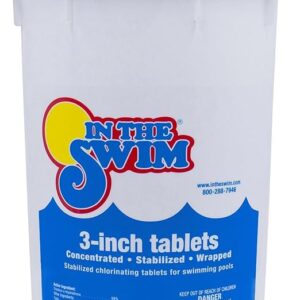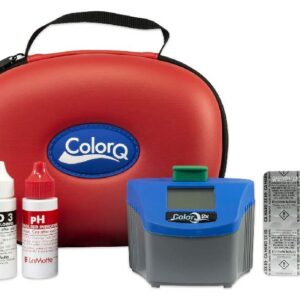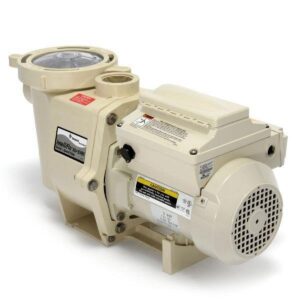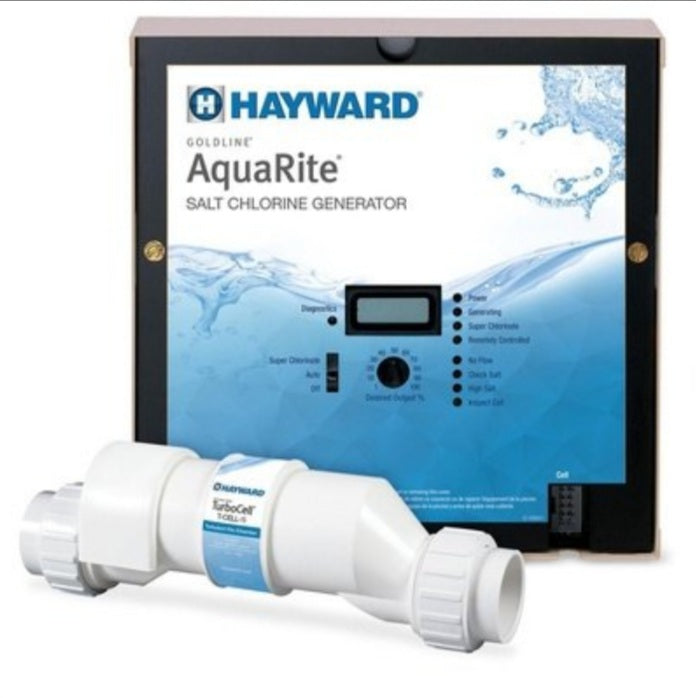盐水游泳池pH值过高的原因及解决方案
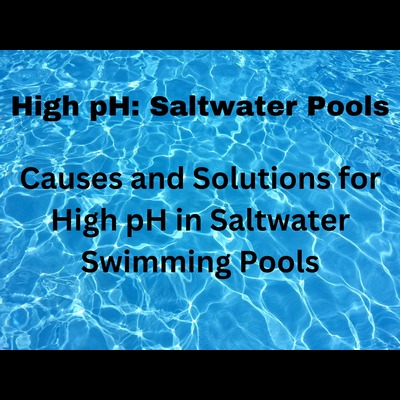
您是否想知道为什么海水泳池的pH值持续上升?海水泳池使用氯发生器产生氯,氯会自动释放到泳池中,以维持推荐的(游离氯)FC水平。
氯气发生器在电解过程中使用盐(氯化钠)和水,产生氯和氢氧化钠作为两种主要副产品。
副产品氢氧化钠具有非常 高pH值 水平并会增加水的 pH 值。
如果游离氯生成量过高,情况会更加糟糕。每产生一氯,就会产生等量的氢氧化钠。
因此,当泳池水中的游离氯水平 (FCL) 过高时,就表明您体内的氢氧化钠(pH 增加剂)较多。
Another indicator that your pool is full of sodium hydroxide might be a high level of Cyanuric acid (Cya) or chlorine stabilizer, which in turn will make your chlorine generator produce more chlorine to match the strength of the stabilizer.
Another common reason your pH level will rise unusually quickly is when the total alkalinity (TA) level is too high in your pool water, whether saltwater or non-saltwater. As such, always ensure your TA level is between 80-120ppm for a saltwater pool.
相关产品: CHLORWORKS 海水泳池系统氯气发生器 – 为高达 40,000 加仑的泳池提供强力氯化
简而言之,我们了解到盐水池中 pH 值上升的原因是:-
1)TA 的增加
2) 氯气产量高,产生 pH 值浓缩的氢氧化钠溶液。
控制盐水池中 pH 值的唯一两种方法是控制氯的产生水平和降低 TA 水平。
Before you start working on fixing your pool’s pH, you must know what is causing the unusual rise in the pH.
请注意,您可以使用强酸(如盐酸)来降低水的 pH 值。
然而,如果氯气产量高,pH值在加入酸后会短暂降低。但随着氯气生产过程中氢氧化钠的增多,pH值会回升。
最受喜爱的无线泳池清洁器: Aiper Scuba S1 无绳机器人泳池吸尘器:定时清洁、智能导航、墙壁、地板和水线清洁,适用于面积达 1,600 平方英尺的所有泳池
如何控制盐水池中的氯生成水平
可以通过氯发生器设置来控制盐水池中的氯生成水平。
将盐水氯发生器中的百分比设置调低至较低设置,以减缓氯的产生。
If the FCL is too high, reduce your pump’s run time too to lower it faster.
Also, ensure that your Cya levels are within the recommended range of 70 ppm to 80 ppm for a saltwater pool.
The most recommended way to lower your stabilizer level is by draining and refilling some pool water with a fresh one, then balancing all pool chemicals, starting with the pH and Chlorine in that order.
一旦你控制了氯的产生量,相信我,你的pH值也会得到控制。更多信息,请访问 如何解决海水泳池中的游离氯问题.
相关产品: 16000 BTU 热泵,适用于高达 5000 加仑的地上泳池和水疗中心,带 WiFi 定时器的加热器和冷却器,120V
Raypak 399,000 BTU 天然气泳池加热器 – 电点火
如何控制TA浓度过高引起的pH值上升
如果 pH 值上升不是由水中高氯生成水平或高稳定剂水平引起的,则 TA 就是原因。
We recommend lowering your TA level to 80ppm or 70ppm using muriatic acid. Since the pH will also reduce when muriatic acid is added, be careful not to lower your pH below 7.2. Add borate (20骡队硼砂如果泳池的pH值低于7.2,则需要添加盐酸和硼酸盐,使其达到7.2到7.4之间的平衡。您可能需要重复添加盐酸和硼酸盐,直到总酸碱度(TA)和pH值达到平衡。
Borate is a more stable pH increaser and will not increase your TA level like most pH increasers in the market out there. Using a borate ensures the pH level will be stable for a long while:) For more, visit the page on 如何平衡游泳池的pH值和TA.



